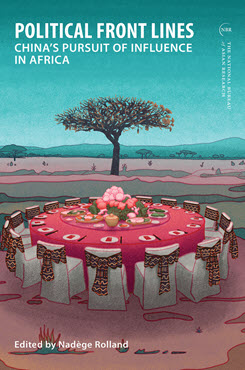Essay from NBR Special Report no. 100
Elite Relationships
Drivers of China’s Influence in East Africa
This essay examines interactions at the elite level of China’s political and social circles and assesses the role of East Africa within China’s strategy to instrumentalize the “global South” to support the country’s global power ambitions.
EXECUTIVE SUMMARY
MAIN ARGUMENT
Despite the divergent development paths of Kenya and Tanzania, China’s tailored strategy toward the two countries has achieved a relatively similar outcome. Both countries’ elected officials actively seek to incorporate elements of the “China model” into their governance framework while serving as a basis of support to China’s bid to change the global landscape to be more amenable to its distinctive institutions and governance. The changing geopolitical landscape in East Africa largely stems from great-power competition. Kenyan and Tanzanian political elites cite dissatisfaction with the West’s emphasis on human rights and democracy as one of the main reasons for the pivot to the East. Additionally, China’s responsive and iterative tactics for cultivating influence enable it to manage local criticism without jeopardizing future prospects. The evolution of the party-state’s presence in East Africa has gradually shifted from economic-centric to political, including the dissemination of state-curated propaganda and ideology. In many instances, Kenya and Tanzania are the primary testing grounds for new, noneconomic initiatives. As a result, other countries in the global South can expect to see some of these ideas deployed in the near future.
POLICY IMPLICATIONS
- China’s shifts in policy toward East Africa are mainly aimed at diversifying its mediums for influence. Policy considerations and discussions should recognize that the future of China’s bilateral relations with Kenya and Tanzania will be increasingly less economic and more political and ideological.
- The dispositions of Kenya’s and Tanzania’s presidents bear considerable influence over those countries’ foreign policy decisions and outcomes. China’s clear and consistent outreach at the executive and ministerial levels appears to mold these established beliefs. Western foreign policy should place a greater premium on high-level visits with East African leaders.
- Kenyan and Tanzanian leaders, when pressed over governance concerns by the West, are willing to prioritize other partnerships. An engagement strategy rooted in democratic values is unlikely to outcompete China’s so-called noninterference strategy, given the current international incentive structure and China’s already firm grasp on international institutions.
Adam George is a Program Officer supporting the countering foreign authoritarian influence portfolio at the International Republican Institute (IRI). He was previously a Boren Scholar in Tanzania.



 Into Africa: China's Emerging Strategy
Into Africa: China's Emerging Strategy
